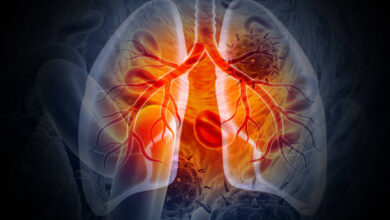
Regular Exercise
In today’s fast-paced world, where technology dominates our lives and convenience is prioritized, the significance of regular exercise often takes a backseat. However, the human body is intricately designed to thrive through movement and activity. Regular exercise is not merely a tool for weight management; it is a fundamental aspect of holistic well-being that extends its benefits far beyond physical fitness.
This article delves into the profound importance of incorporating regular exercise into our lifestyles and explores the multifaceted advantages it offers.
Physical Health Benefits
- Cardiovascular Health: Engaging in regular exercise improves the efficiency of the cardiovascular system. It strengthens the heart muscle, enhances blood circulation, and lowers the risk of heart diseases like hypertension, stroke, and coronary artery disease.
- Weight Management: Exercise plays a pivotal role in maintaining a healthy weight. It helps burn calories, build lean muscle mass, and regulate metabolism, making it an indispensable tool for those striving to achieve or maintain a healthy body weight.
- Bone Strength: Weight-bearing exercises such as walking, jogging, and resistance training stimulate bone health. Regular physical activity aids in preventing osteoporosis and reduces the risk of fractures, especially as one age.
- Improved Respiratory Function: Exercise enhances lung capacity and efficiency, leading to improved respiratory function. This is particularly beneficial for individuals with respiratory conditions like asthma.
- Diabetes Management: Physical activity aids in regulating blood sugar levels, making it a valuable component in managing and preventing type 2 diabetes. Regular exercise increases insulin sensitivity, thus helping maintain healthy glucose levels.

Mental Health Benefits
- Stress Reduction: Exercise stimulates the release of endorphins, often referred to as “feel-good” hormones. These chemicals alleviate stress, anxiety, and depression, contributing to an overall improved mood.
- Cognitive Function: Regular physical activity has been linked to enhanced cognitive function and improved memory. It promotes neuroplasticity, which is the brain’s ability to adapt and rewire itself.
- Mental Clarity: Engaging in physical activity helps clear the mind and fosters mental clarity. It can act as a form of meditation, allowing individuals to disconnect from daily stressors and focus on the present moment.
- Sleep Quality: Exercise positively impacts sleep patterns and quality. Regular physical activity promotes better sleep duration and deeper sleep cycles, leading to improved overall sleep quality.
Social and Emotional Benefits
- Social Interaction: Participating in group exercise classes, sports teams, or recreational activities fosters social interaction. These interactions contribute to a sense of belonging and community, combating feelings of loneliness and isolation.
- Self-esteem and Body Image: Regular exercise can lead to improved self-esteem and a positive body image. As individuals witness their physical progress and achievements, they develop a sense of accomplishment and self-worth.
- Personal Discipline: Maintaining a consistent exercise routine requires discipline and commitment. These qualities extend beyond the gym, positively impacting other aspects of life, such as work and relationships.
Longevity and Disease Prevention
- Aging Gracefully: Regular exercise is a cornerstone of aging gracefully. It helps preserve muscle mass, flexibility, and balance, reducing the risk of falls and injuries among the elderly.
- Disease Prevention: Engaging in physical activity significantly reduces the risk of chronic diseases such as certain cancers, cardiovascular diseases, and metabolic disorders. It strengthens the immune system, aiding the body’s defense against infections.

Tips for Incorporating Regular Exercise
- Set Realistic Goals: Start with achievable goals to prevent burnout and frustration. Gradually increase the intensity and duration of your workouts as your fitness level improves.
- Find Activities You Enjoy: Engaging in activities you genuinely enjoy increases the likelihood of sticking to your exercise routine. Whether it’s dancing, hiking, swimming, or playing a sport, there’s something for everyone.
- Variety is Key: Incorporating variety prevents boredom and targets different muscle groups. Mix aerobic exercises, strength training, and flexibility work for a well-rounded fitness regimen.
- Consistency Over Intensity: Consistency trumps sporadic intense workouts. Aim for regular, moderate exercise over time rather than occasional intense sessions.
- Listen to Your Body: Pay attention to your body’s signals. Rest when needed, and don’t push yourself to the point of exhaustion or injury.
Conclusion
Regular exercise is not merely a luxury or a fad; it is a fundamental requirement for a healthy, balanced life. The multifaceted benefits it offers, spanning physical, mental, social, and emotional well-being, are indispensable in our modern lives. By prioritizing regular exercise, individuals can unlock the potential for a longer, healthier, and more fulfilling life. So, let us embrace movement and make physical activity an integral part of our daily routines, for it is a pathway to vitality and overall well-being.





